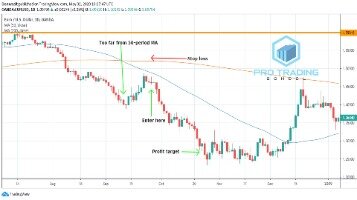
In swap transactions, money is simultaneously lent in one currency and money of the same value is lent in another currency – i.e. two parties exchange the same monetary value with each other in different currencies. With outright forwards (also called currency forwards), currencies are exchanged at a predetermined exchange rate and a point in time after the spot date. In the case of a warrant, the seller of the option grants the buyer the right to purchase further derivatives at a predetermined price within a certain period of time.
Receivables represented by outstanding invoices can be sold to “factoring” companies, which then collect amounts owed. A financial instrument is https://currency-trading.org/education/the-ultimate-tastyworks-tutorial-2021/ a legal contract between two parties with a monetary value. These contracts can be created, traded, or modified according to the parties’ needs.
The phased completion of IFRS 9
A business that owns an equity-based financial instrument can choose to either invest further in the instrument or sell it whenever they deem necessary. For example, if a company were to pay cash for a bond, another party is obligated to deliver a financial instrument for the transaction to be fully completed. One company is obligated to provide cash, while the other is obligated to provide the bond. While insurance policies are not considered securities, one could possibly view them an alternative type of financial instrument because they confer a claim and certain rights to the policyholder and obligations to the insurer.

The borrower (usually a business partner) is always a silent partner within the structure of these loans and is considered a last-rate creditor. This means that after all the other creditors in the event of winding up, he will be paid back. The company’s interest is deductible and is assumed to be basic loan interest. The bearers of such bonds earn fixed interest and will become shareholders in the business to which they are lending in compliance with the terms set out in the issue contract. They can be negotiated and allow a fixed or variable) interest to their owner. The instruments will also depend on whether they are debt-based or equitable.
Different effective dates of IFRS 9 and the new insurance contracts standard
Bonds convertible to shares can be issued without granting fixed rights, given that the conversion option reserved for the owner amounts to the payable interest. A spot transaction is a currency exchange where the exchange takes place no later than the second business day after the transaction is concluded – i.e. “on the spot”. Likewise, for a person looking to park some funds towards their retirement, bonds (and stocks) might seem more ideal than currencies. A stock market investment might seem more ideal for an investor who prefers to take on more risk. For taking up this risk, the investor is of course compensated with higher returns.
Financial Risk Management Software Market Share Size 2023 : Top … – Digital Journal
Financial Risk Management Software Market Share Size 2023 : Top ….
Posted: Tue, 18 Jul 2023 09:18:22 GMT [source]
Debt instruments can be either short term less than one year or long term with tenure greater than one year. A treasury analyst is in charge of an organization’s financial activity, managing cash flow, credit, https://trading-market.org/how-to-trade-using-the-gravestone-doji-reversal/ income, asset levels, and liability obligations. Their exact job duties may vary depending on their employer (for example, whether they work at businesses, non-profit organizations, or government agencies).
Sukuk Market Research Report 2023: Unveiling Growth Opportunities in the Global Islamic Bond Market
The conventional way commercial companies collect new capital is through securities. Depending on their pricing and consumer demand, this can be an enticing alternative to bank loans. Another drawback to bank loans as a funding source is that the bank will look for a measure of borrower default security using comprehensive financial agreements. Damage liquidity – typically less liquid than shares are the majority of hybrids. So only a handful of purchasers and sellers for such financial investment are on the market, so it is very possible that you would have to do this for a cheaper price if you want to sell your investment quickly.
- Financial instruments are considered as financial assets when instruments are bonds, stocks, and sales on credit.
- There are different types of financial instruments, viz, currency, share and bond.
- In the case of futures, a transaction is contractually fixed in which derivatives are exchanged for money at a specified future date at a fixed price.
- Trigger events – investment characteristics and returns depend on the case.
The exception to the case is of course foreign exchange, which falls into none of the above categories. Despite the fair value requirement for all equity investments, IFRS 9 contains guidance on when cost may be the best estimate of fair value and also when it might not be representative of fair value. The version of IFRS 9 issued in 2014 supersedes all previous versions and is mandatorily effective for periods beginning on or after 1 January 2018 with early adoption permitted (subject to local endorsement requirements). We undertake various activities to support the consistent application of IFRS Standards, which includes implementation support for recently issued Standards. We do this because the quality of implementation and application of the Standards affects the benefits that investors receive from having a single set of global standards.
Identify High Dividend-Yield Stocks in Under 1 Minute on Tickertape
A cash instrument is classification of a financial product whose value is determined by the markets. These could be securities and most importantly, the ones that can be easily transferable. Accounting of investment in equity instruments depends on the percentage of ownership. On a regular basis, we all use financial instruments to make payments for goods and services that we need.
Navigating non-fungible tokens, copyright challenges, and … – Lexology
Navigating non-fungible tokens, copyright challenges, and ….
Posted: Tue, 18 Jul 2023 09:53:34 GMT [source]
If the instrument is debt, then they can be further categorized as ‘short-term debt’ and ‘long-term debt’. Foreign exchange instruments and transactions are neither debt- nor equity-based and belong in their own category. The value of derivative instruments is based on the underlying cash instrument.
To avoid unseen losses resulting from any operation of an issuer, hybrid instruments shall be used by the credits and depositors of the financial institution to provide a capital pillow. Wholesale sales and institutional investors such as you and I will not be granted direct access to this market to dominate this monetary market. This is primarily due to the size of the tickets or the transaction value. Unlike stock market transactions, money market transactions are high in value. Loans are also cash instruments where there is a contract between lender and borrower. This contract specifies, for example, how high the monthly interest instalments and the interest rate will be when the loan is repaid.
Substantially more than the financial investment is anticipated in the critical investment speculator. Hybrid (also referred to as hybrid security) is a security category that links certain debt security features and all equity securities characteristics. https://forex-world.net/stocks/thermo-fisher/ Financial hybrid security incorporates equity and debt, which can be described as an equity bond, but also as a debt share. Usually, bonds are backed up by real assets or collateral, whereas the issuer’s creditworthiness only backs unsecured bonds.
